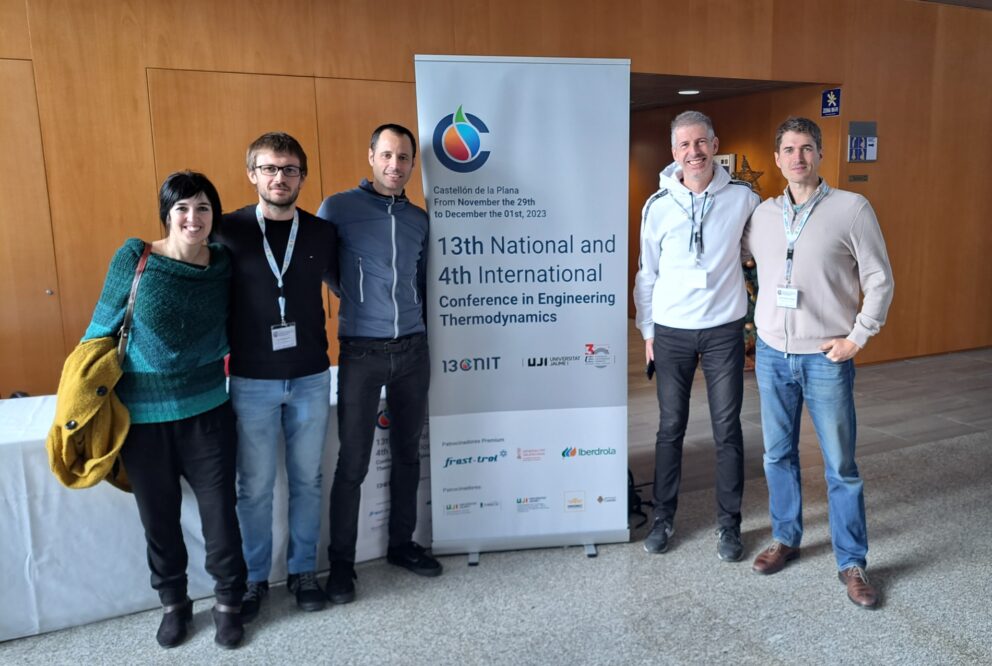Personal de ENEDI participó en el 13th National and 4th International Conference on Engineering Thermodynamics (13CNIT), que se celebró entre el miércoles 29 de noviembre y el viernes 01 de diciembre de 2023 en la Universitat Jaume I (Castellón de la Plana) bajo el lema “Avances en Ingeniería Termodinámica, la clave de un desarrollo sostenible”.
https://www.fue.uji.es/13cnit
Tras la primera edición, ocurrida en 1999, el congreso ha ido creciendo y en las últimas cuatro ediciones se ha internacionalizado para potenciar su impacto y ampliar el número de trabajos presentados, investigadoras, docentes y empresas participantes. De esta forma se ha logrado un mayor intercambio de información, avances técnicos y sinergias entre los y las participantes a este evento.
En total ENEDI ha contribuido con 14 ponencias y posters que abarcan las tres principales líneas de trabajo del grupo: física de edificios, instalaciones térmicas y almacenamiento de energía térmica. A continuación se muestra un listado con el título de todos los trabajos presentados:
- Consideration in the design of a Local Energy Community: A case study in Guzman
- Thermal stability of the D-Mannitol-Dulcitol eutectic mixture for thermal storage applications
- Experimental assessment of a plate-based LHTES: comparison between compressed expanded graphite plates infiltrated with a PCM and bulk PCM plates macroencapsulated in aluminium boxes
- Development of a semi-virtual platform to test microgeneration hybrid thermal systems: analysis of the performance of a Stirling micro-CHP installation in a single-family house
- Calculation of the cooling and heating solar efficiency in passive skin solution systems
- Experimental method for estimating the influence of the solar radiation on the inner surface heat flux of opaque elements of building envelopes
- Overall uncertainty analysis of zonal indoor air temperature measurement in an in-use office building
- On the use of TGA for the study of degradation of thermal energy storage materials: analysis of the influence of evaporation
- Heat cost allocation in multi-apartment buildings with collective systems
- Project-based learning as a tool for improving both technical and interpersonal skills of thermal engineering students
- Exploring the Integration of Photovoltaic Panels and Heat Pumps for Public Residential Buildings Sustainability
- Method for obtaining an accurate model of photovoltaic forced ventilated façade (PV-FVF)
- Method of merging Thermoeconomics and Machine Learning to calculate the effects of climate change on building thermal systems
- ARCAS: A novel multicriteria methodology to assess the renovation of social housing buildings

